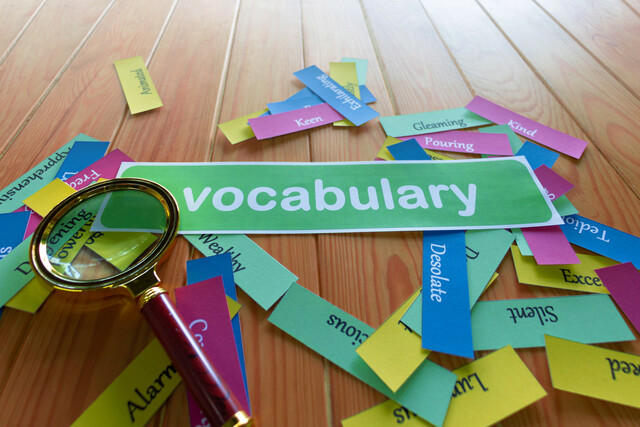Online Class: Writing Improvement 101
We know that effective writing will help students in their coursework but it's equally important to write well in the workplace. If a job interviewer is considering two qualified candidates, the candidate who can write well will have the edge.
COURSE CLOSED
We're sorry, this course is no longer open for enrollment.
We're sorry, this course is no longer open for enrollment.
-
13Lessons
-
32Exams &
Assignments -
14Hours
average time -
1.4CEUs
Course Description
We know that effective writing will help students in their coursework but it's equally important to write well in the workplace. If a job interviewer is considering two qualified candidates, the candidate who can write well will have the edge. If you're interested in improving your basic writing beyond correct grammar and punctuation, this course will help you. The more you write, the more confidence you will have in your abilities as a writer.
The best grammar and punctuation in the world can still produce average or even poor writing if you don't know how to use the sentences properly or which type of sentence works best to get your point across. By the same token, if you can write lyrical sentences but you string them together into paragraphs that are a tangled mess, the sense and impact of each sentence is lost.
This course is designed to give students the most flexibility and independence. You set your own schedule and learn at your convenience. Just because this course is online doesn't mean you're left on your own. The instructor will be reviewing and grading assignments and is always available to answer questions through email.
This course assumes you have a high school reading and writing level in English, and that you understand sentence structure, grammar and punctuation.
- Completely Online
- Self-Paced
- 6 Months to Complete
- 24/7 Availability
- Start Anytime
- PC & Mac Compatible
- Android & iOS Friendly
- Accredited CEUs

Course Lessons
Lesson 1: Unlocking Your Creative Potential: Mastering Writing Skills for Impact
Sinclair Lewis urged aspiring writers to forgo lectures and practice writing, highlighting the futility of theory without application. Mastering sentence structure and avoiding common writing pitfalls leads to polished and impactful prose.
5 Total Points
 Lesson 1 Video
Lesson 1 Video Review Practice Worksheet: Lesson-1-Activity-10799.pdf
Review Practice Worksheet: Lesson-1-Activity-10799.pdf Lesson discussions: Writing and Grammar Level; Reasons for Taking this Course
Lesson discussions: Writing and Grammar Level; Reasons for Taking this Course Complete Assignment: Introductions
Complete Assignment: Introductions
Lesson 2: Achieving Sentence Mastery
Effective writing uses varied sentence structures to smoothly express ideas, as relying too much on either short or long sentences can hinder comprehension. Combining sentences with techniques like compound and complex structures fosters better flow and connection.
Additional lesson topics: Refining Your Sentences for the Best Results
35 Total Points
 Lesson 2 Video
Lesson 2 Video Review Practice Worksheet: Lesson-2-Activity-10800.pdf
Review Practice Worksheet: Lesson-2-Activity-10800.pdf Complete: Lesson 2.1 Assignment
Complete: Lesson 2.1 Assignment Complete: Lesson 2.2 Assignment
Complete: Lesson 2.2 Assignment Complete: Lesson 2.3 Assignment
Complete: Lesson 2.3 Assignment Assessment: Lesson 2 Exam
Assessment: Lesson 2 Exam
Lesson 3: Building Clarity: Paragraph Basics
Organized into paragraphs, narratives benefit from clearly structured information where topic sentences introduce the main idea. A concluding sentence may follow to summarize or strengthen the paragraph's theme.
28 Total Points
 Lesson 3 Video
Lesson 3 Video Review Practice Worksheet: Lesson-3-WorkSheet-10801.pdf
Review Practice Worksheet: Lesson-3-WorkSheet-10801.pdf Complete: Lesson 3.1 Assignment - Paragraph Writing
Complete: Lesson 3.1 Assignment - Paragraph Writing Complete: Lesson 3.2 Assignment - Exercise on Paragraph Writing
Complete: Lesson 3.2 Assignment - Exercise on Paragraph Writing Complete: Lesson 3.3 Assignment - Paragraph Writing
Complete: Lesson 3.3 Assignment - Paragraph Writing Assessment: Lesson 3 Exam
Assessment: Lesson 3 Exam
Lesson 4: Exploring Common Paragraph Structures: Narrative, Descriptive, and Expository
Narrative paragraphs craft a story with a beginning, middle, and end, using chronological order. In contrast, descriptive paragraphs focus on sensory details, and expository paragraphs provide explanations or factual information.
33 Total Points
 Lesson 4 Video
Lesson 4 Video Review Practice Worksheet: Lesson-4-Downloadable-10802.pdf
Review Practice Worksheet: Lesson-4-Downloadable-10802.pdf Complete: Lesson 4.1 Assignment - Narrative Paragraph
Complete: Lesson 4.1 Assignment - Narrative Paragraph Complete: Lesson 4.2 Assignment - Descriptive Paragraph
Complete: Lesson 4.2 Assignment - Descriptive Paragraph Complete: Lesson 4.3 Assignment - Expository Paragraph
Complete: Lesson 4.3 Assignment - Expository Paragraph Assessment: Lesson 4 Exam
Assessment: Lesson 4 Exam
Lesson 5: Show, Don't Tell
A powerful story transcends mere description, captivating readers by painting vivid pictures in their imagination with the technique 'show, don't tell.' Writers can enhance their narrative by constructing dynamic scenes and employing dialogue, bringing the reader directly into the heart of the action.
25 Total Points
 Lesson 5 Video
Lesson 5 Video Review Practice Worksheet: Lesson-5-WordSearch-10803.pdf
Review Practice Worksheet: Lesson-5-WordSearch-10803.pdf Complete: Lesson 5 Assignment
Complete: Lesson 5 Assignment Assessment: Lesson 5 Exam
Assessment: Lesson 5 Exam
Lesson 6: First-Person Writing: Blurring Lines Between Author and Character
Third person point of view offers a blend of perspective and intimacy, allowing a narrative to shift from character to character. This flexibility makes it the most popular point of view in modern fiction, providing enough intimacy to engage with one character at a time without the constraints of first person.
23 Total Points
 Lesson 6 Video
Lesson 6 Video Review Practice Worksheet: Lesson-6-Downloadable-10804.pdf
Review Practice Worksheet: Lesson-6-Downloadable-10804.pdf Complete: Lesson 6 Assignment
Complete: Lesson 6 Assignment Assessment: Lesson 6 Exam
Assessment: Lesson 6 Exam
Lesson 7: Crafting Compelling Conversations: Mastering the Art of Dialogue
Proper dialogue writing enhances the flow of a story while showcasing the character's emotions and personalities. To maintain interest, diversify your attributions and avoid unnecessary adverbs, ensuring the dialogue remains powerful and realistic.
45 Total Points
 Lesson 7 Video
Lesson 7 Video Review Practice Worksheet: Lesson-7-HomeWork-10805.pdf
Review Practice Worksheet: Lesson-7-HomeWork-10805.pdf Complete: Lesson 7.1 Assignment
Complete: Lesson 7.1 Assignment Complete: Lesson 7.2 Assignment - Dialogue Writing
Complete: Lesson 7.2 Assignment - Dialogue Writing Complete: Lesson 7.3 Assignment - Dialogue Writing
Complete: Lesson 7.3 Assignment - Dialogue Writing Assessment: Lesson 7 Exam
Assessment: Lesson 7 Exam
Lesson 8: Enhancing Narratives with Interior Thoughts
Interior monologue effectively reveals a character's internal struggles and dilemmas, fostering empathy and understanding in the reader. Though tempting, resisting constant use is vital to preserve the clarity and momentum of your storytelling.
24 Total Points
 Lesson 8 Video
Lesson 8 Video Review Practice Worksheet: Lesson-8-WordSearch-10806.pdf
Review Practice Worksheet: Lesson-8-WordSearch-10806.pdf Complete: Lesson 8 Assignment
Complete: Lesson 8 Assignment Assessment: Lesson 8 Exam
Assessment: Lesson 8 Exam
Lesson 9: Proportion in Writing
Flashbacks, while sometimes necessary for character development, can disrupt the momentum and proportional flow of a story if overused or improperly integrated. Writers should ensure that flashbacks enhance the narrative rather than confuse the chronology or burden the plot with superfluous details.
Additional lesson topics: Description in Fiction
25 Total Points
 Lesson 9 Video
Lesson 9 Video Review Practice Worksheet: Lesson-9-Downloadable-10807.pdf
Review Practice Worksheet: Lesson-9-Downloadable-10807.pdf Complete: Lesson 9 Assignment
Complete: Lesson 9 Assignment Assessment: Lesson 9 Exam
Assessment: Lesson 9 Exam
Lesson 10: Mastering the Art of Advanced Writing
Improve your writing skills by mastering the basic mechanics and avoiding common amateur mistakes such as lazy sentence structures and clich�s. Refine your style to achieve a sophisticated tone akin to professional writers by utilizing stronger verbs and maintaining consistent style throughout your work.
25 Total Points
 Lesson 10 Video
Lesson 10 Video Review Practice Worksheet: Lesson-10-WordSearch-10808.pdf
Review Practice Worksheet: Lesson-10-WordSearch-10808.pdf Complete: Lesson 10 Assignment
Complete: Lesson 10 Assignment Assessment: Lesson 10 Exam
Assessment: Lesson 10 Exam
Lesson 11: Wordy Phrases Simplified
Writers often mistakenly believe that lengthier phrases add sophistication, yet this can lead to redundancy and confusion in their work. Emphasizing brevity and clarity, this lesson highlights effective substitutions to enhance writing.
10 Total Points
 Lesson 11 Video
Lesson 11 Video Review Practice Worksheet: Lesson-11-Activity-10809.pdf
Review Practice Worksheet: Lesson-11-Activity-10809.pdf Complete: Lesson 11 Assignment
Complete: Lesson 11 Assignment
Lesson 12: Quick Tips for Effective Proofreading
Proofreading involves not only correcting spelling mistakes but also refining the flow of ideas and ensuring consistency. Reading your work out loud or using a recording can help identify areas needing improvement.
20 Total Points
 Lesson 12 Video
Lesson 12 Video Review Practice Worksheet: Lesson-12-WorkSheet-10810.pdf
Review Practice Worksheet: Lesson-12-WorkSheet-10810.pdf Lesson discussions: Editing
Lesson discussions: Editing Complete: Lesson 12.1 Assignment
Complete: Lesson 12.1 Assignment Complete: Lesson 12.2 Assignment
Complete: Lesson 12.2 Assignment Assessment: Lesson 12 Exam
Assessment: Lesson 12 Exam
Lesson 13: Unlocking the Secrets of Writing Excellence
Lynne Truss's 'Eats, Shoots & Leaves' humorously criticizes the modern state of punctuation and provides readers with enjoyable yet informative insights. Her inventive approach, including a 'Punctuation Repair Kit,' makes learning about punctuation both entertaining and educational.
60 Total Points
 Lesson 13 Video
Lesson 13 Video Review Practice Worksheet: Lesson-13-WordSearch-10811.pdf
Review Practice Worksheet: Lesson-13-WordSearch-10811.pdf Lesson discussions: What is your opinion of this course?; Final Course Survey; Program Evaluation Follow-up Survey (End of Course); Course Comments
Lesson discussions: What is your opinion of this course?; Final Course Survey; Program Evaluation Follow-up Survey (End of Course); Course Comments Assessment: THE FINAL EXAM
Assessment: THE FINAL EXAM
358
Total Course Points
Related Courses
-
 12 hours
1.2 CEUs
ESL Grammar Skills Level 2
+ More Info
12 hours
1.2 CEUs
ESL Grammar Skills Level 2
+ More Info
-
 3 hours
0.3 CEUs
Cat Care and Training 101
+ More Info
3 hours
0.3 CEUs
Cat Care and Training 101
+ More Info
-
 12 hours
1.2 CEUs
Write to Win: Secrets of Persuasive Writing
+ More Info
12 hours
1.2 CEUs
Write to Win: Secrets of Persuasive Writing
+ More Info
-
 5 hours
0.5 CEUs
Children's Birthday Parties 101
+ More Info
5 hours
0.5 CEUs
Children's Birthday Parties 101
+ More Info
-
 5 hours
0.5 CEUs
Vocabulary Level 1
+ More Info
5 hours
0.5 CEUs
Vocabulary Level 1
+ More Info
-
 18 hours
1.8 CEUs
Medical Terminology 101
+ More Info
18 hours
1.8 CEUs
Medical Terminology 101
+ More Info
-
 8 hours
0.8 CEUs
Strategic Planning
+ More Info
8 hours
0.8 CEUs
Strategic Planning
+ More Info
-
 35 hours
3.5 CEUs
Statistics 101
+ More Info
35 hours
3.5 CEUs
Statistics 101
+ More Info
-
 8 hours
0.8 CEUs
MySQL
+ More Info
8 hours
0.8 CEUs
MySQL
+ More Info
-
 3 hours
0.3 CEUs
Workplace Drug Use - An HR Guide
+ More Info
3 hours
0.3 CEUs
Workplace Drug Use - An HR Guide
+ More Info

